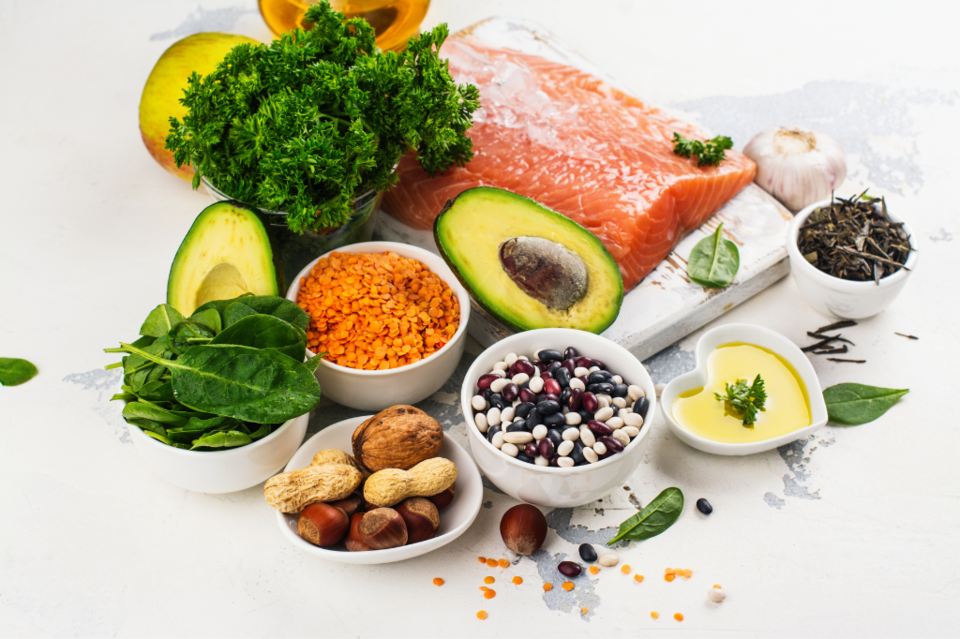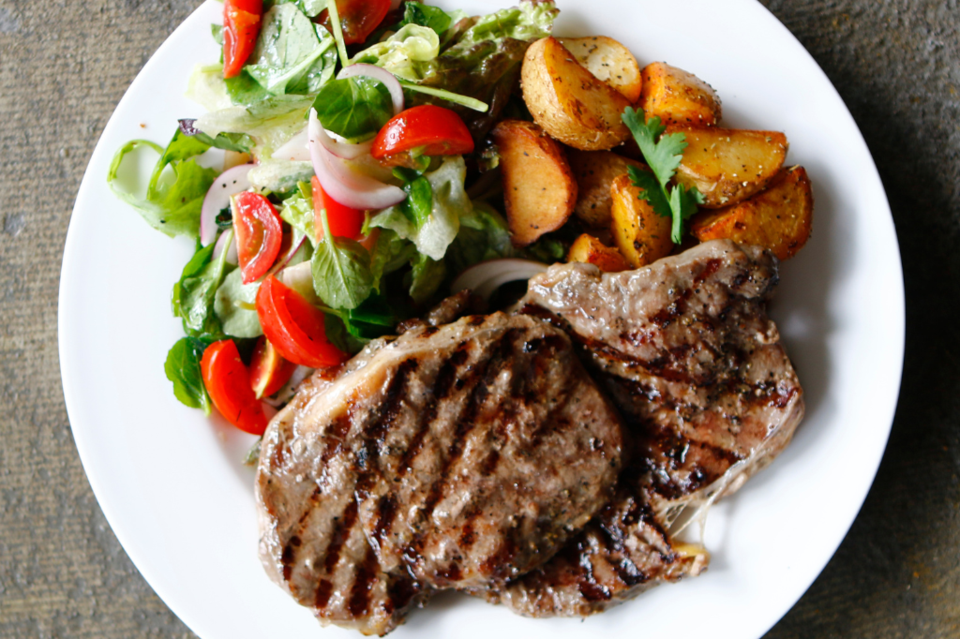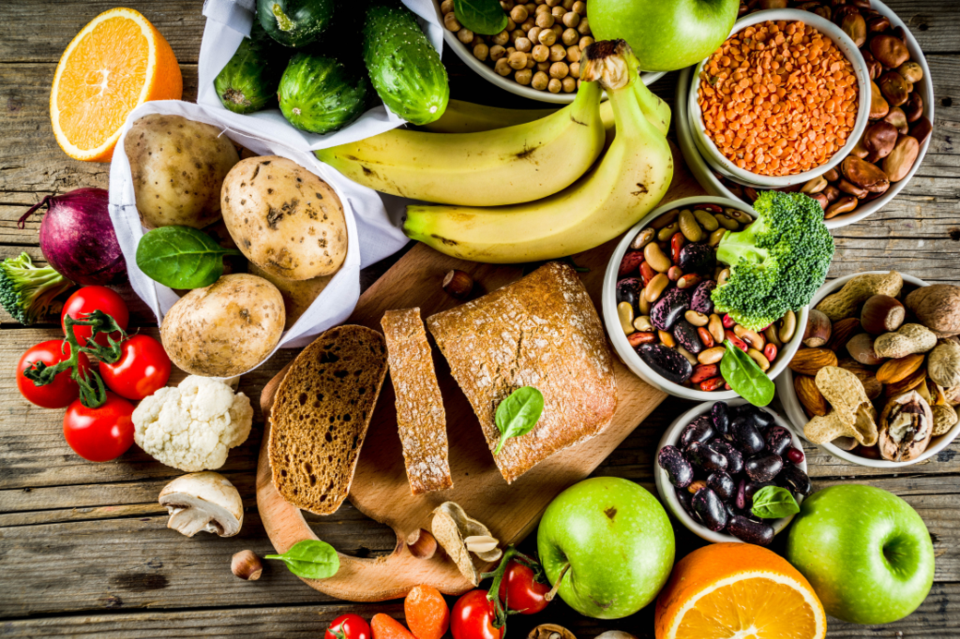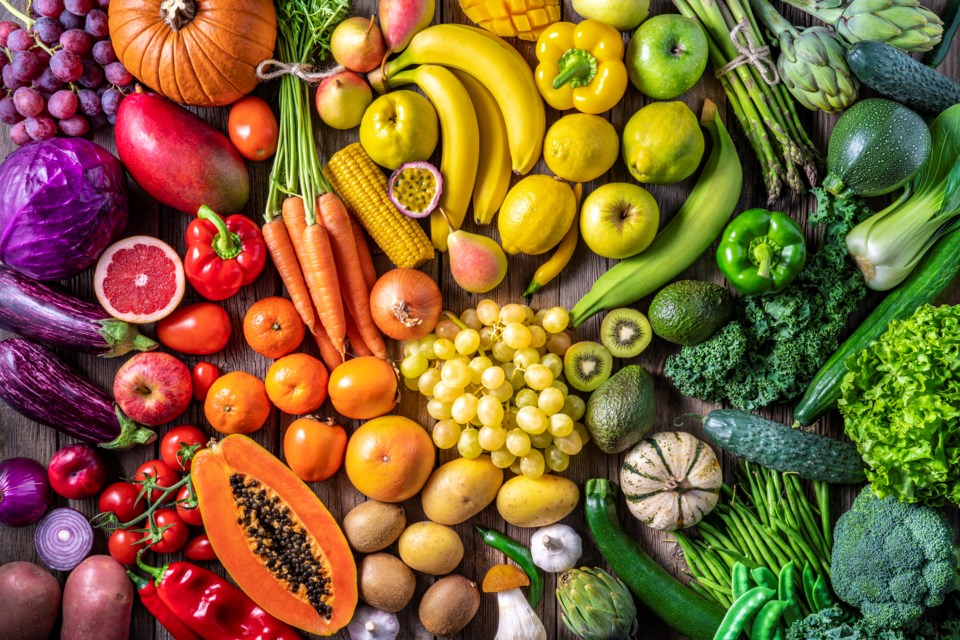All carbs lead to weight gain, frozen foods are subpar to fresh, and all cholesterol is bad, which are just a few of the nutrition myths that have been circulating—and unquestioningly believed—for years.
If you’re like most of us and have that one person in your life who tends to perpetuate nutrition falsehoods, this article may be the perfect thing to share. Or, perhaps you’ll discover that you’ve been mistaken about a food fable all this time. Either way, it’s never too late to set the record straight.
Here are 10 of the most common misconceptions about nutrition.

Myth 1: All cholesterol is bad
Cholesterol is often portrayed as the villain in the story of heart health, but not all cholesterol is bad. In fact, our bodies need cholesterol to function. High-density lipoprotein (HDL) cholesterol is considered good cholesterol as it helps remove harmful low-density lipoprotein (LDL) cholesterol from the bloodstream. You can raise HDL levels by consuming foods high in healthy fats, such as monounsaturated and polyunsaturated fats. The key is to focus on maintaining a healthy balance of both types of cholesterol rather than demonizing all cholesterol as harmful.
Myth 2: Plant-based diets lack essential nutrients
Contrary to popular belief, plant-based diets can provide all the essential nutrients your body needs. With some careful meal planning that includes a variety of plant-based foods, it’s actually not that difficult to meet your daily requirements for protein, omega-3s, B12, iron, calcium—and other essential nutrients. The trick is to ensure you have a nice balance of legumes, nuts, seeds, whole grains, fruits, and vegetables, all rich sources of those key nutrients that support a healthy plant-based diet.
Myth 3: Fresh fruits and vegetables are always better than frozen or canned
While fresh fruits and vegetables are delicious and undoubtedly nutritious, frozen or canned options can be just as healthy—and sometimes healthier! Some frozen fruits and vegetables retain more nutrients than their fresh counterparts, as they are often frozen at peak ripeness. For example, frozen peas, green beans, carrots, spinach and broccoli contain a higher antioxidant content. Canned fruits and vegetables can also be nutritious, but choosing options without added sugars or excessive sodium is important.
The other upside of frozen and canned is that there’s less chance of wasting it because you didn’t eat it in time, thanks to the extended preservation of freezing and canning. The key is to prioritize a variety of fruits and vegetables in your diet, whether fresh, frozen, or canned.

Myth 4: You can out-exercise a bad diet
Exercise is essential for overall health and well-being, but despite what some may think, you can’t out-train a bad diet. While physical activity does burn calories and improve your fitness levels, a poor diet high in unhealthy fats, sugars, and processed foods can negate the benefits of exercise. For your best health, maintain a diet with balanced macronutrients that provide the necessary nutrients to support your body's needs. A healthy lifestyle is comprised of both regular exercise and nutritious eating habits.
Myth 5: Periodic detoxing is needed for good health
Detox diets and cleanses are popular trends promoted as a way to rid the body of toxins and promote weight loss, and maybe you enjoy a regimented break from the status quo where you stick to nothing but juice for several days or take powerful supplements to clean out your system—and that’s perfectly fine but not necessary. Our bodies already have natural detoxification systems, such as the liver and kidneys, that continuously eliminate waste and toxins. Not to mention that extreme detox regimens may deprive the body of essential nutrients, especially if they are for a prolonged period. Instead of relying on detox diets, focus on eating a balanced diet rich in whole foods and exercise regularly to support your body's natural detoxification processes.
Myth 6: Gluten-free is healthier
For individuals with celiac disease or gluten sensitivity, a gluten-free diet is essential for managing their condition. However, no science supports the claim that gluten-free is healthier for the general population. Gluten-free products may be lower in fibre and essential nutrients than their gluten-containing counterparts. If you do not have a medical reason to avoid gluten, stick to a healthy, conventional diet.

Myth 7: Red meat is bad for you
Red meat can be a valuable source of protein, iron, zinc, and B vitamins, but consuming high amounts of red meat and processed meat has been linked to an increased risk of some health conditions, such as heart disease and cancer. Eating red meat in moderation and choosing lean cuts to limit saturated fat intake is essential. To promote overall health, consider incorporating various protein sources into your diet, such as poultry, fish, legumes, nuts, and seeds.
Myth 8: Nutrients from vitamins are equal to food
While vitamin supplements can benefit individuals with nutrient deficiencies or health conditions or simply looking for added reinforcements, they are not a substitute for a balanced diet rich in whole foods. Nutrients from food are often more bioavailable, meaning the body better absorbs them than those obtained from supplements. It's always best to prioritize real food as your source of key nutrients and use supplements in tandem and under the guidance of your healthcare provider.
Myth 9: Cow’s milk is bad
Cow's milk is an excellent calcium, vitamin D, and protein source, essential for bone health and overall well-being. But for those who are lactose intolerant or have a dairy allergy, cow's milk can spell discomfort and tummy upset—but that doesn’t mean it’s not a good choice for everyone. If you’re intolerant to lactose, choose one of the many plant-milk alternatives available to you, such as almond, soy, coconut or oat milk. But if you enjoy cow's milk and tolerate it well, it can be a nutritious addition to your diet in moderation.

Myth 10: Carbs will make you gain weight
Carbohydrates often get a bad rap when it comes to weight management, but not all carbs are created equal. Whole grains, fruits, vegetables, and legumes are all sources of complex carbohydrates that provide essential nutrients and fibre to support a healthy diet. Refined carbohydrates, such as sugary snacks, white bread, and pastries, can contribute to weight gain when consumed in excess. By choosing whole, unprocessed carbohydrates and balancing your intake with protein and healthy fats, you can enjoy a well-rounded diet and still succeed at reducing body fat, if needed.
About the Author

Alicia is a journalist and editor in digital and print media specializing in health, nutrition, fitness, and wellness. She was previously the Editorial Director of Clean Eating and Vegetarian Times. Her work has also appeared in Hone Health The Edge, Yoga Journal, Women’s Running, and Oxygen, among others. In addition to being a content creator, she's an ISSA-certified nutritionist, certified personal trainer, and fitness studio owner in Toronto. Alicia loves spreading the word about helpful, science-backed health information, and she can be contacted via her website at aliciamtyler.com.




